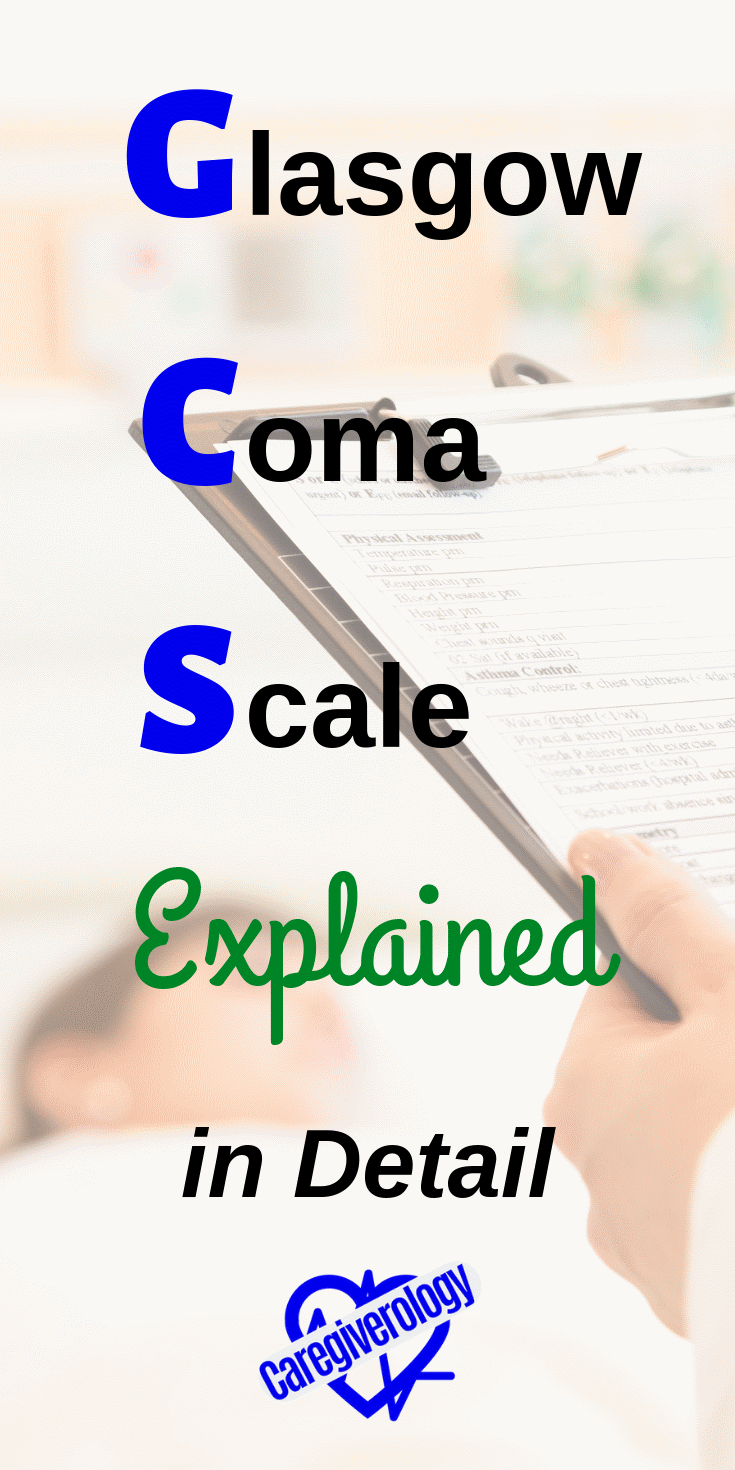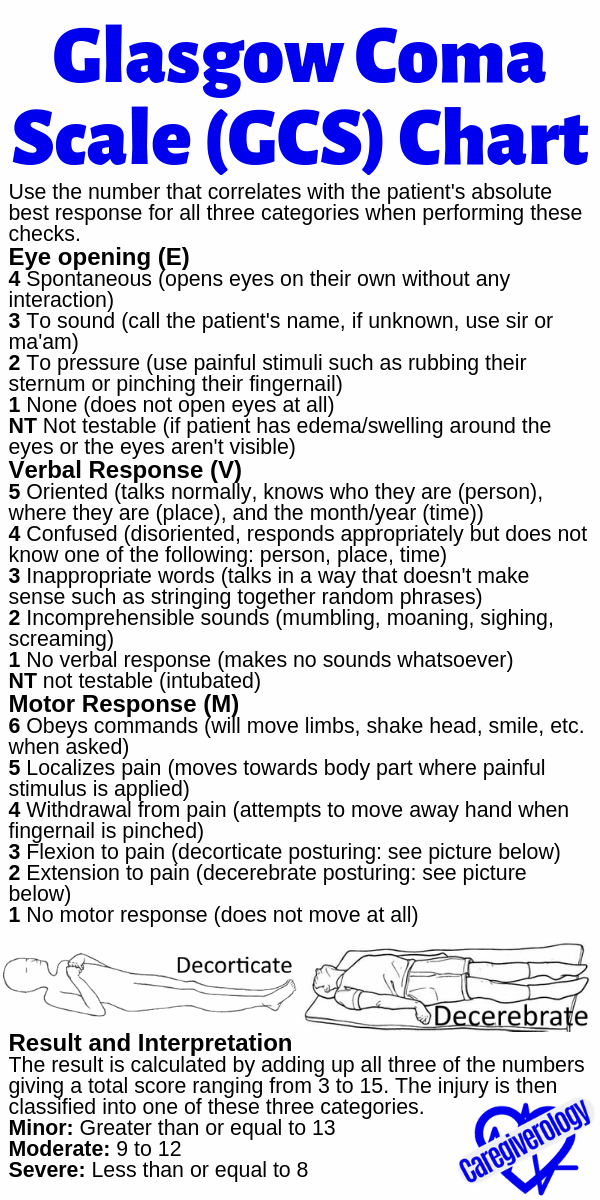Glasgow Coma Scale (GCS) Explained in Detail
The glasgow coma scale (abbreviated as GCS) is a tool created by Dr. Graham Teasdale used to measure a patient's level of consciousness (LOC) to determine the severity of a traumatic brain injury (TBI). A simplified version of this would be the AVPU scale. It uses a series of three different tests: eye opening (E), verbal response (V), and motor response (M).
Use the number that correlates with the patient's absolute best response for all three categories when performing these checks.
Eye opening Verbal response Motor response Result Not testable Pin Download and print this chart (pdf) Poster
Eye Opening (E)
4 Spontaneous (opens eyes on their own without any interaction)
3 To sound (call the patient's name, if unknown, use sir or ma'am)
2 To pressure (use painful stimuli such as rubbing their sternum or pinching their fingernail)
1 None (does not open eyes at all)
NT Not testable (if patient has edema/swelling around the eyes or the eyes aren't visible)
Verbal Response (V)
5 Oriented (talks normally, knows who they are (person), where they are (place), and the month/year (time))
4 Confused (disoriented, responds appropriately but does not know one of the following: person, place, time)
3 Inappropriate words (talks in a way that doesn't make sense such as stringing together random phrases)
2 Incomprehensible sounds (mumbling, moaning, sighing, screaming)
1 No verbal response (makes no sounds whatsoever)
NT not testable (intubated)
Motor Response (M)
6 Obeys commands (will move limbs, shake head, smile, etc. when asked)
5 Localizes pain (moves towards body part where painful stimulus is applied)
4 Withdrawal from pain (attempts to move away hand when fingernail is pinched)
3 Flexion to pain (decorticate posturing: see picture below)
2 Extension to pain (decerebrate posturing: see picture below)
1 No motor response (does not move at all)
 Decorticate position
Decorticate position Decerebrate
DecerebrateResult and Interpretation
The result is calculated by adding up all three of the numbers giving a total score ranging from 3 to 15. The injury is then classified into one of these three categories. Use the calculator below as needed.
Minor: Greater than or equal to 13
Moderate: 9 to 12
Severe: Less than or equal to 8
0 789+MS 456–M+ 123×M- 0.EXP÷MR ±√xC=MC |
| powered by calculator.net |
Not Testable (NT) and Modifiers
If the glasgow coma scale (GCS) score is not just a simple number, but also has letters, it could be a modifier. If the eye opening (E) score is not testable (NT), it may read as E1c or simply Ec. The c stands for closed. Similarly, the verbal response (V) may read as V1t or Vt. The t stands for tube (endotracheal tube which is used for intubation). These are still counted as a score of one.
So for example, a final score may read as GCS 4tc. This would be interpreted as the eyes are closed (c) due to swelling and the patient is intubated (t). Both of these together equal 2 so the remaining amount (4-2=2) is left for the motor response (M). Therefore it can be assumed that the patient has a decerebrate response to pain.
Pin this info!
Medical References for Caregivers
From Glasgow Coma Scale (GCS) Explained in Detail to Home
Recent Articles
-
Common Truck Crash Injuries and Legal Remedies - Caregiverology
Jul 19, 25 10:49 AM
Known for its sun-drenched beaches, vibrant arts scene, and bustling maritime industry, Fort Lauderdale is a city that sees heavy traffic both on its roads and at its busy port. Unfortunately, with th… -
Why Expert Legal Help Matters After Serious Injury - Caregiverology
Jul 19, 25 10:35 AM
In Houston, over 67,600 car crashes occurred in 2023, resulting in 290 fatalities and 1,612 serious injuries. That’s roughly 185 accidents every day. -
How Life Care Planners Support Injury Recovery - Caregiverology
Jul 19, 25 10:18 AM
In Los Angeles, life care planners play a vital role in supporting injury recovery, especially for individuals facing catastrophic injuries such as traumatic brain injuries or spinal cord damage.






New! Comments
Have something to say about what you just read? Leave a comment in the box below.